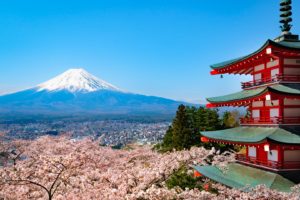Patrons Special: RSP Discourse #1 (September 2018)
<\/h2>
19 September 2018
Welcome to "Discourse", where our editors and guests take a critical look at how the category "religion" is being used in the media, the public sphere, and the academic field. This episode, David and Chris are joined by RSP Associate Editor Breann Fallon from Sydney, Australia, to discuss new Aussy Prime Minister ScoMo's Pentacostalism, an Abductee Democratic candidate in Miami, Scottish Nationalism as "religion-like", and more.
Featuring
Christopher R. Cotter

David G. Robertson

Breann Fallon

The Gods of Indian Country
<\/h2>
17 September 2018
Dr. Jennifer Graber's new book, "The Gods of Indian Country," grew out of lingering questions from her first book, a study of American Quakers and prisons. Graber learned that Quakers served as missionaries to Native American reservations in the West. She combined this interest in Quaker missions with her research into Native American captivity, so that the resulting narrative contrasts the motives of U.S. officials with Kiowa captives on an Oklahoma reservation.
Podcast: Play in new window | Download | Embed
Subscribe: RSS
Featuring
Daniel Gorman, Jr.

Jennifer Graber

What We Can Learn from our Founding Fathers
<\/h2>
18 June 2018
In this discussion, Professor Schmidt discusses her keynote lecture at the Open University's "Contemporary Religion in Historical Perspectives: Publics and Performances". We turn back to discuss some of the "founding fathers" of the discipline of Religious Studies: Rudolf Otto, R.R. Marrett, and Andrew Lang.
Podcast: Play in new window | Download | Embed
Subscribe: RSS
Featuring
Jonathan Tuckett

Bettina Schmidt

Spirituality
<\/h2>
11 June 2018
To discuss 'spirituality', we are joined by Boaz Huss and Steven Sutcliffe. We discuss the genealogy of 'spirituality', and its contemporary significance, with particular reference to the New Age movement. The second half focuses on how spirituality may trouble the religion / secular distinction, and its implications for the critical study of religion.
Podcast: Play in new window | Download | Embed
Subscribe: RSS
Featuring
David G. Robertson

Steven Sutcliffe

Boaz Huss

“Soka Gakkai, Kōmeitō and the religious voices of Japan’s political arena
<\/h2>
4 June 2018
Throughout Japanese history, religion has always coloured and influenced the matters of the state. Religious validation of imperialist aggression and Japan’s war efforts in the first half of the 20th century is just one example of this.
Podcast: Play in new window | Download | Embed
Subscribe: RSS
Featuring
Paulina Kolata

Levi McLaughlin
